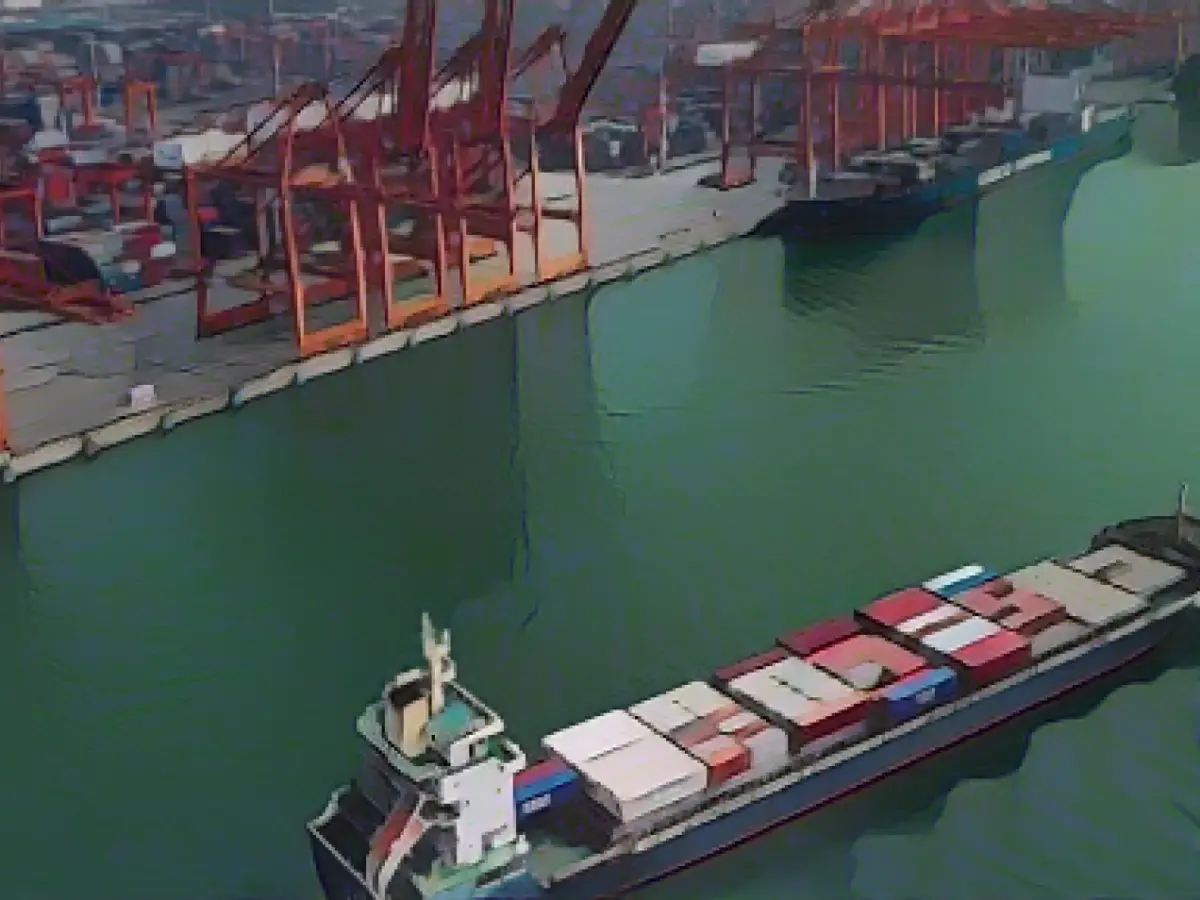Navigating Trade Shifts: China's Export Boost and Import Dip
Globally, there's a mix of positive and negative news revolving around China's foreign trade scene. In November, the country showed resilience with a 0.5% increase in exports compared to the previous year, as reported by its customs authority. Conversely, imports took an unexpected turn, dipping by 0.6%.
China's Trade Relations with Global Allies
China's exports to the EU and Germany have experienced a decline throughout the year, falling by over 10%. This downturn has been a concern for EU policymakers for some time now. In contrast, China's exports to Russia have seen a significant increase.
Facing Geopolitical Challenges
China currently grapples with various challenges, including the impact of global inflation, higher interest rates, and cooling economies in the US and EU. These factors are putting pressure on demand for Chinese goods. Adding to these concerns, Moody's recently downgraded its outlook for China's credit rating.
The Real Estate Crisis in China
The crisis in China's real estate sector continues to persist, with problems for developers like China Evergrande. Despite relaxations in home-purchase and loan regulations, sales of new apartments in smaller cities have slowed dramatically.
Adapting to Geopolitical Shifts
To succeed in the evolving geopolitical landscape, China must find a balance between diversifying its export markets while maintaining good relationships with global partners like the EU and US.
China's Export Surge and Similar Factors
China's export surge is mainly due to industrial overcapacity and strategic policies. The country is also leveraging export restrictions on critical inputs like gallium, germanium, and rare earth-processing equipment. The manufactured goods trade surplus has grown significantly, entrenching global market concentration in key sectors.
Impact of China's Import Slump and Global Relations
China's import slump is influenced by a decline in domestic milk production and strategic decisions to enhance petrochemical competitiveness. This trend is impacting global relations, particularly with the US and EU, through trade tensions and strategic responses to tariffs and export restrictions.
ASEAN's Position: Balancing Dependencies and Diversification
ASEAN countries are dealing with China's export surge and global de-risking efforts. Despite rapid growth in exports, concerns about supply chain dependencies and the need for diversification are rising.
China's Focus on Green Transition and High-Quality Growth
China is focusing on transitioning towards a green economy, with electric vehicles, renewable energy, and advanced manufacturing initiatives as key components of its domestic consumption and green transformation strategies.
EU-China Cooperation: Necessity for Inclusive Global Growth
Despite ongoing trade tensions, cooperation between China and the EU remains vital to ensure inclusive global growth. Bilateral trade between the two reached $785.8 billion in 2024.
United States and China: Strained Relations
While the US has imposed tariffs on Chinese goods, China has retaliated with tariffs on US goods like coal, LNG, and agricultural machinery. This trade war has created significant tensions and is likely to continue affecting global trade dynamics.








